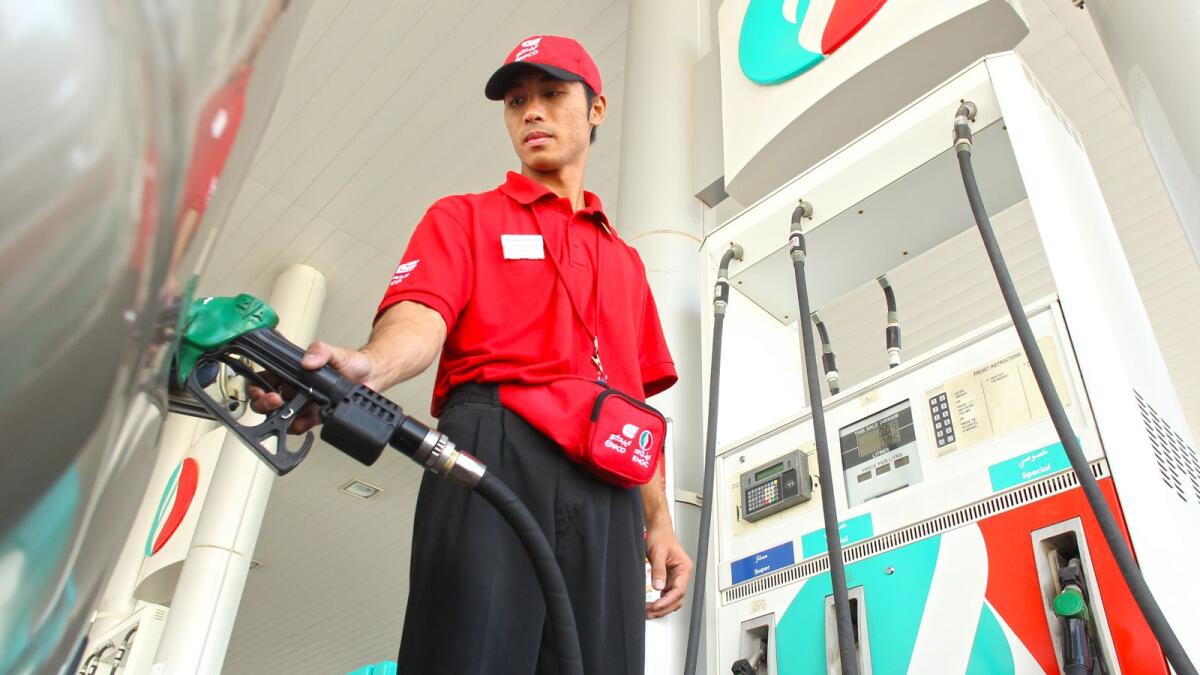In August, petrol prices in the UAE are expected to increase due to the rise in global oil prices. The average global price of oil in July was around $84 a barrel, higher than the previous month’s average of $82.6 per barrel. Oil prices started strong in July, reaching above $87 a barrel in the first week before eventually falling to $79.77 a barrel by the end of the month. The increase in oil prices can be attributed to a decline in inventories in the US, as well as rising demand during the Northern Hemisphere’s summer driving season.
The UAE’s Fuel Price Committee adjusts retail petrol prices at the end of each month to align with global rates. In July, petrol prices in the UAE saw a reduction of around 14-15 fils per litre, with Super 98, Special 95, and E-Plus 91 priced at Dh2.99, Dh2.88, and Dh2.80 per litre respectively. Residents who rely on petrol for their daily commutes and freight and logistics companies that use diesel for transportation closely monitor these price changes as they directly impact their expenses.
Market experts are monitoring the situation in the Middle East region, fearing that increased tensions could disrupt crude oil supplies. Vijay Valecha, chief investment officer of Century Financial, highlighted concerns about escalating conflict between Israel and Hamas and the potential impact on oil markets. Additionally, the market is awaiting the outcome of the US Federal Reserve’s meeting, with expectations that interest rates will remain unchanged this time but may be reduced in the September meeting.
The global oil market experienced fluctuations in July, with prices starting strong before gradually decreasing towards the end of the month. Brent crude traded above $85 a barrel in the first half of July but dropped to $79.77 a barrel by the end of the month. Factors such as declining US inventories, increased summer demand, and geopolitical tensions in the Middle East contributed to the volatility in oil prices. The uncertainty surrounding these factors has created a sense of caution among investors and market participants.
The fluctuation in oil prices has a significant impact on the overall economy, as it affects transportation costs, consumer spending, and inflation rates. The UAE, being a major oil-producing country, closely monitors global oil prices to manage its domestic fuel prices. Changes in petrol and diesel prices can influence various sectors of the economy, such as logistics, tourism, and construction. As global markets continue to react to geopolitical events and economic indicators, the volatility in oil prices is expected to persist in the coming months.
In conclusion, the increase in global oil prices in July is likely to result in higher petrol prices in the UAE for the month of August. The UAE’s Fuel Price Committee regularly adjusts retail petrol prices to align with international rates, ensuring that consumers are not overpaying for fuel. With ongoing geopolitical tensions and economic uncertainties impacting the oil market, it is essential for businesses and consumers in the UAE to stay informed about fuel price changes and how they may affect their daily operations and expenses. By monitoring market trends and developments, individuals and organizations can better prepare for potential shifts in petrol and diesel prices and mitigate any negative impacts on their budgets.











